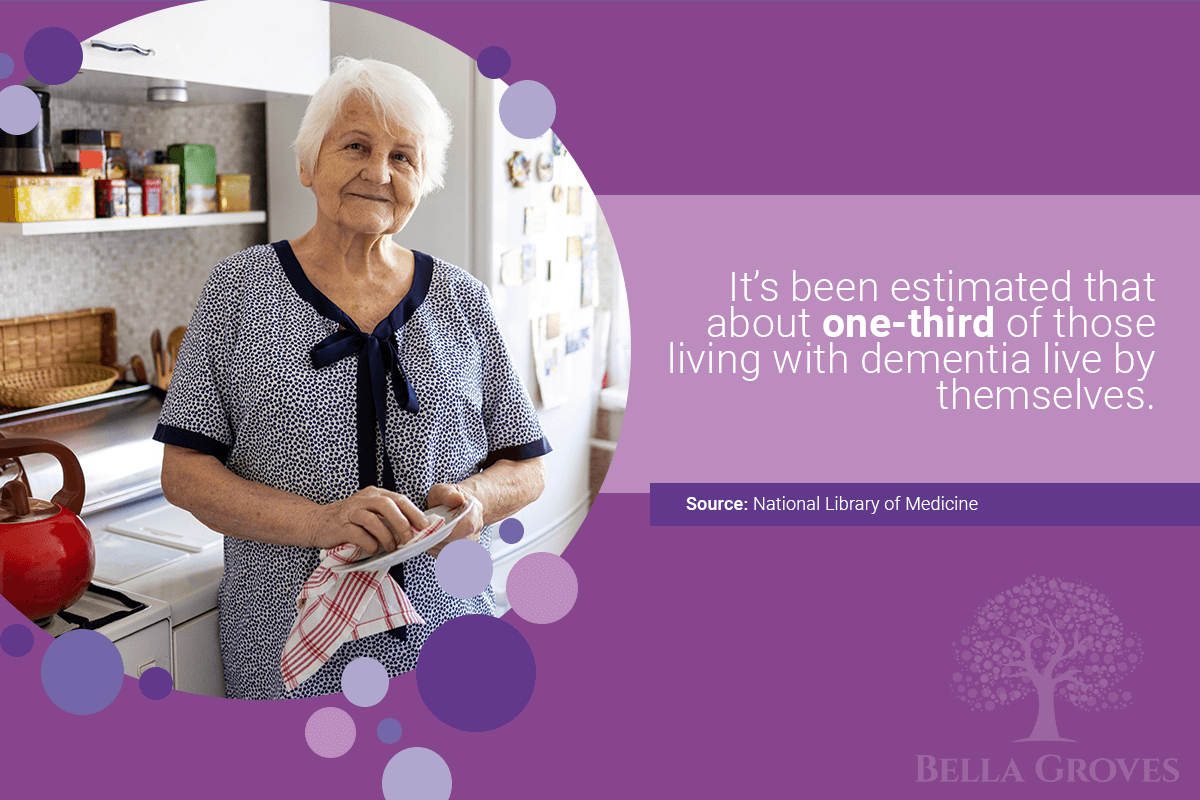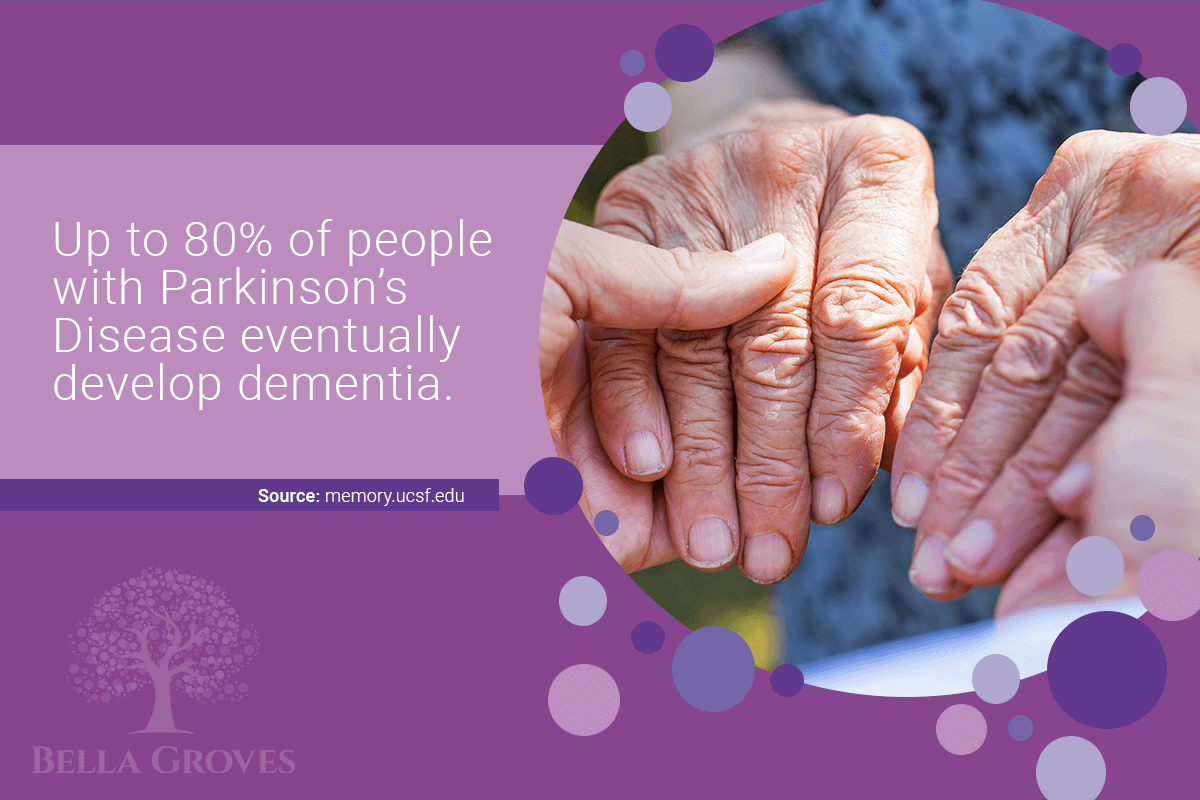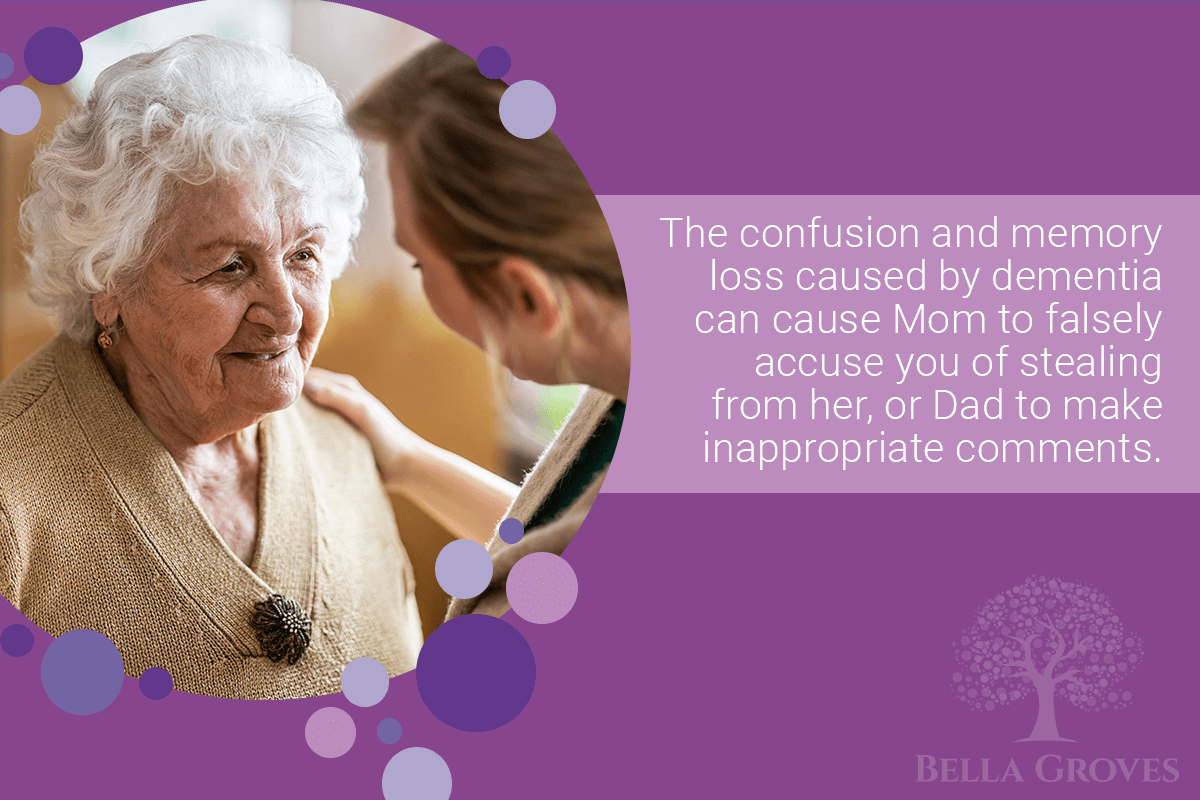
Can a Person with Dementia Live Alone?
A dementia diagnosis does not mean the end of a person’s story. In fact, our mission at Bella Groves is to provide resources and support for individuals and families affected by dementia so they can continue to tell their stories and experience every moment with Unconditional Joy.
However, we also know that receiving a dementia diagnosis is scary, overwhelming, and emotional. Your loved one’s safety and well-being become your top priority, and you may question whether it’s okay for Mom or Dad to live alone now that they are living with dementia.
- How will this diagnosis affect their safety?
- What if something happens?
- When should we consider memory care facilities?
Below, our dementia care team dives into this topic and provides tips to ensure your loved one is able to live safely and enjoy the best quality of life possible.
Living Alone with Early Dementia
It’s been estimated that about one-third of those living with dementia live by themselves – so yes, a person living with early-stage dementia can live alone. However, dementia is a very personal experience, and what works for one person and family may not work for another.
If your loved one has recently been diagnosed with dementia, it’s important to assess their current situation and make note of any difficulties or challenges they may be experiencing. Here are a few things to consider:
- Is Mom keeping up with personal hygiene and grooming?
- Is Dad withdrawing or showing signs of isolation?
- Have any of Mom’s friends or neighbors expressed concerns?
Evaluating these and other areas of their life can help you, your family, and healthcare providers determine if living alone is appropriate for your loved one.
It’s also important to remember that dementia is a progressive disease. While Mom or Dad may be able to live independently at the beginning, their abilities and cognitive function will impact their safety over time. As a result, you have to continually monitor and be aware of changes a person living with dementia may be experiencing to maintain their health and safety.
Promoting Safety & Independence
If Mom or Dad is able to live alone and maintain their independence in the early stages of dementia, there are still aspects of day-to-day life that you should consider and plan for.
Lapses in Memory
The most well-known and common symptom of dementia is memory loss and its overall impact on memory. With early dementia, memory loss may present itself as misplacing objects like keys or glasses or finding the right word or name. However, it can also present itself as forgetting to turn off an appliance like a stove or not locking the door when leaving the house.
Fortunately, home safety devices and apps can be implemented to plan for these circumstances. For instance, automatic stove shut-off devices can be installed that track how often the stove has been forgotten so family members and care partners can monitor memory changes.
Driving
In the early stages, a person living with dementia may still have strong cognitive function and retain the ability and desire to drive independently. If they can do so safely, taking away that freedom is unnecessary.
However, consider creating a driving contract for when the moment comes a person living with dementia is no longer able to drive. Read our blog about driving and dementia to learn more about establishing a driving contract.
Building a Support Network for Your Loved One
Dementia care is a collaborative care experience. Just because your loved one wants to maintain their independence and live alone doesn’t mean they don’t need support. Creating a strong support system can ensure Mom or Dad have people they can rely on for assistance for things like:
- Grocery shopping
- Medication management
- Transportation to appointments
- Social visits and gatherings
- Home maintenance
Support Groups
In addition, consider support groups for people living with dementia. When it comes to dementia, we often focus on the family – spouse, children, grandchildren – of the person living with dementia. However, a person living with dementia, especially a recent diagnosis, also has fears, concerns, and questions, and they need to remember they are not alone.
When Is It Time to Consider Memory Care Facilities?
Making the decision to move Mom or Dad to a memory care community is never easy. They might be apprehensive about the idea of moving, especially in the midst of their current stage of dementia.
After an initial dementia diagnosis, you will want to talk with Mom and Dad about the type of care they will want as their condition progresses. Doing it early allows them to share their opinions and wishes and ensures a plan can be created that everyone is comfortable with.
At Bella Groves, our residential care community in Bulverde, Texas, partners with families through every step of their journey. Our mission is to create an environment for your family where you can create Unconditional Joy as you support your loved one living with dementia.
If you have questions about your dementia care journey, we invite you to call us at (830) 323-0440 or email us at hello@bellagroves.com.


